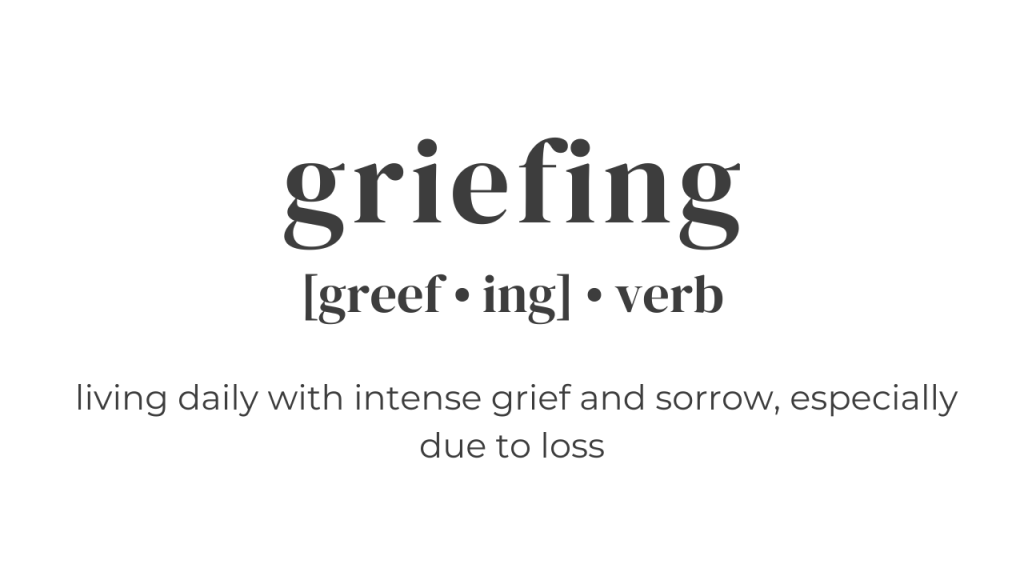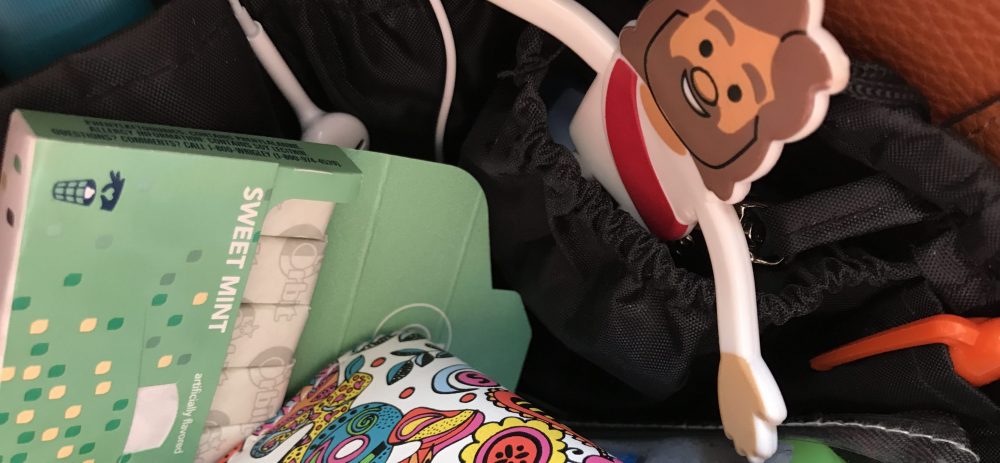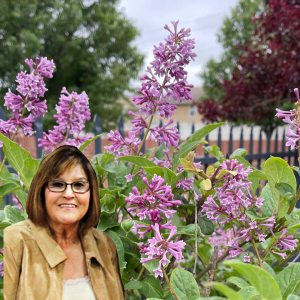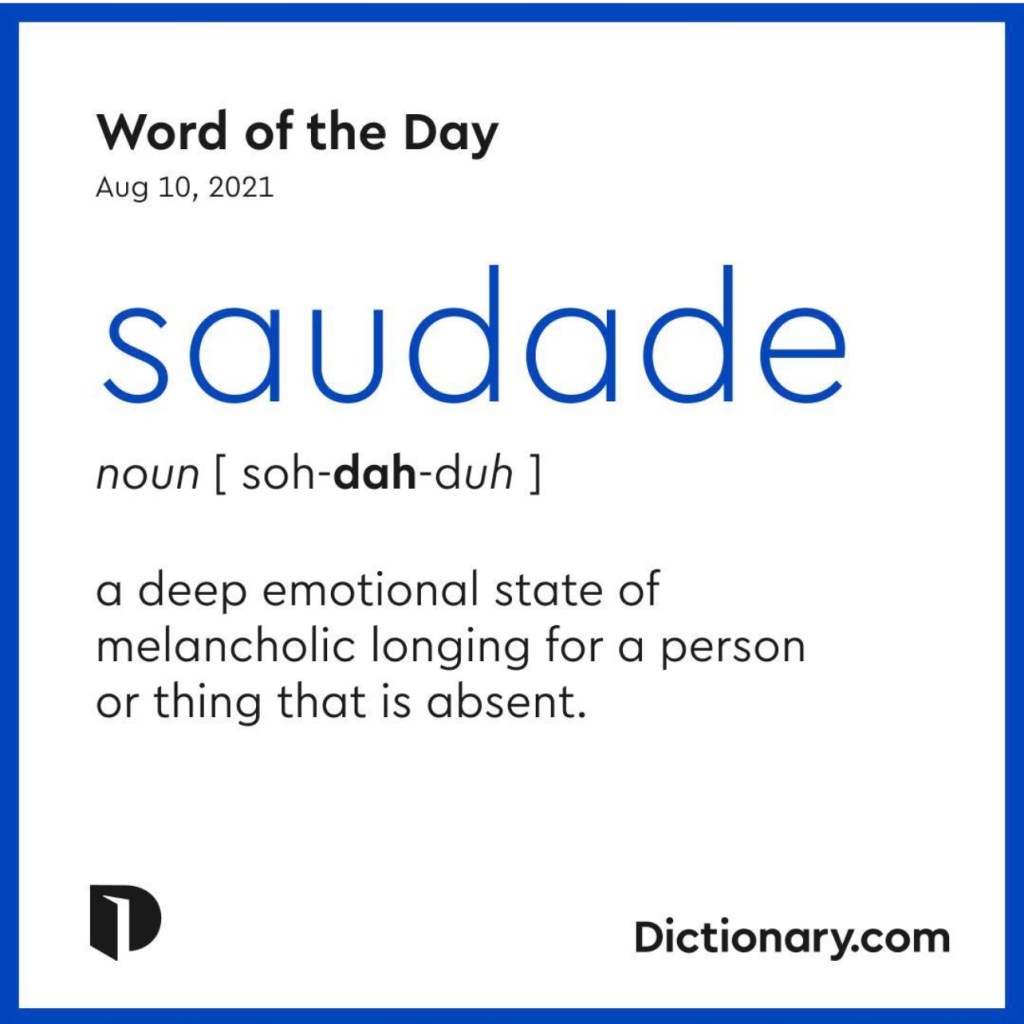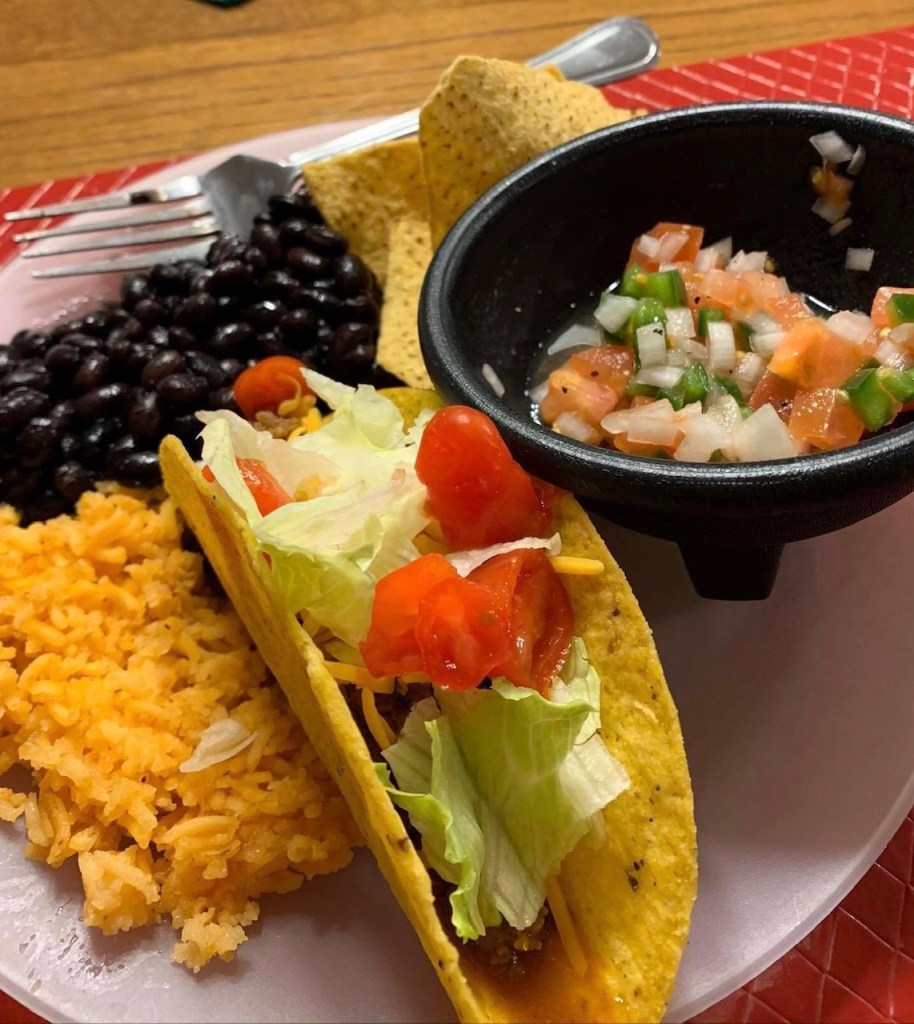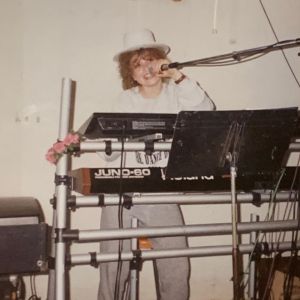
This rainbow appeared in the sky on the evening of Mom’s funeral.
“Give sorrow words; the grief that does not speak knits up the o-er wrought heart and bids it break.” William Shakespeare
You can call it a charmed life, a blessing or maybe it was just dumb luck, but my experience with grief has been minimal until recently. I barely remember attending funerals as a kid and when we did, I really didn’t have a strong connection to the departed. However, all that has changed in adulthood…especially in the last few years. And here, in 2020, I feel like I’ve been hit with the worst heartache yet after losing my Mom.
Now that I find myself in the throes of grief I’ve become well aware of the stages that accompany it: denial, anger, bargaining, depression, and acceptance. As I continue to process, I realize that a more apt description might be “stages of loss” rather than grief as so many therapists acknowledge these stages include every type of bereavement and are most certainly not limited to death. Regardless of the type of loss, the stages still exist and the process is never easy.
One of my strongest personality traits is dutifulness. I clearly get that from my parents and it’s something I’ve given a lot of thought to over the last few months. I approach life in a resolute fashion. I like lists…there’s a certain satisfaction that comes with crossing things off. I also keep a handwritten calendar and methodically cross off the days (I’ve been ridiculed for this one). I set reminders, use post-its, carry a reporter’s notepad, etc. All of this helps me keep up with my commitments and uphold my obligations. I know that people expect things from me and I work hard to fulfill my responsibilities. It’s important to me. So when approaching loss I immediately went to research the stages of grief and anticipated checking them off one by one. Let me tell you, this is not how grief works.
Turns out the stages of grief don’t necessarily go in order and they can (and often do) repeat, sometimes more than once…if not endlessly. This is problematic for stoic types like me who eagerly want to cross things off the list and move forward. I am not a dweller, but my pragmatic approach to grief isn’t really working out. I’m not sure what I expected here. I knew the road would be hard. And while most buy into “the time heals all wounds” camp, as a realist, I know that time doesn’t necessarily heal anything. A loss will always be a loss— a hard consequence of love.
As I move through this process, I’ve taken it upon myself to rename the stages of grief…making them more applicable for me. Do with them what you will, but I’ve found these slight variances helpful, healing, and hopeful as I continue to sort out the emotions of losing one of the most beloved figures in my life.
DISBELIEF, not denial. I know my Mother is gone. I very well remember speaking to her when she tested positive for COVID-19. I recall the day she told me she scheduled the drive-thru appointment and we went over her symptoms. I remember the first and second time she was taken to the emergency room. I don’t deny the fear and angst that followed. None of us can deny the three weeks she spent in ICU. We can’t deny the emotional ups and downs that accompanied the good and bad days in the hospital. There is no denying that she is gone, no denying the funeral, and no denying the loss. She isn’t here and I feel it every day, but sometimes I can’t believe all of this happened. Not to her, not to my strong Mother. I can’t tell you how many times I still reach for my phone…to call her, to text her. We had so many plans.
AVOIDANCE, not anger. I’m not really an angry person. I can get mad, I can even be a bit of a hothead if you catch me on a bad day. I have a passionate nature, but I’ve never seen anger solve one single thing. For me, anger has no purpose. People have asked me if I’m angry at God. I am not— the thought hasn’t even crossed my mind. What I do know is that lately it’s been easier to just avoid emotion altogether. The loss is raw and if I think about it too much the sadness can be overwhelming. I know that’s to be expected, but I feel like I can’t live in sadness. For better or worse, I am guilty of avoiding the emotional component of grief until it seeps out from the corners of my eyes. I’m doing the best I can to deal with it in small doses. Losing my Mother is not fair, but it’s not fair for anyone who loses a loved one.
UNCONTROLLABLE TEARS, not bargaining. As I move out of the “100-day fog,” I am reluctantly beginning to accept the new normal…and right now the new normal involves a lot of tears. I’m not bargaining, there’s nothing to bargain about. Therapists often say that “guilt is the wingman of bargaining.” This is the part of grief where the questions and “what-ifs” take over, followed by guilt for not doing more, making different decisions, and on and on. What if COVID-19 didn’t happen? What if we made Mom stay home? What if we had sought care sooner? What if…what if…what if…? The never-ending questions remind me of the old adage about worrying and rocking chairs, both give you something to do, but ultimately get you nowhere. I know better than to negotiate over things I cannot control and I guess that’s where the uncontrollable tears come in. Death and loss, they humble you. They remind us of our humanness, our vulnerability, and that we are most certainly not capable of controlling most things in this life. I cry over songs on the radio, television shows, photographs, and memories…both good and bad. If I could make things different, I would…but I can’t…and thus, the tears. You can’t bargain with tears.
GOOD/BAD DAYS, not depression.* In my heart of hearts, I truly believe that it’s ok to be sad. I remember journaling once that to truly know good, one has to fully know bad. I have been asked countless times over the last few months if I am depressed. I am not, but I am sad, grief-stricken, heartbroken, and emotionally exhausted. My Mother is gone. My world forever changed. I will miss her every day for the rest of my life. And yet I know, forward is the only option. Forward is the best option. On good days, I laugh and smile remembering and retelling funny stories and sharing treasured memories about my Mom. On bad days I pray for peace and comfort knowing how fully blessed I am to have called her my Mother. Then, the process repeats.
PEACE, not acceptance. In the stages of grief, acceptance comes when one faces their new reality. There’s an understanding that things will never be the same. For me, acceptance is not that far removed from denial. I knew from the moment I received that phone call that things would never be the same. Not “accepting” the circumstances didn’t make them less real. There’s no denying the loss and accepting the situation wasn’t negotiable. Throughout this whole process, I have prayed for peace, an emotional status where there is tranquility and my soul is well. I have seen this. I have experienced this. I have felt this with my whole being. Right now, that kind of peace is inconsistent, but I know and trust that a feeling of permanent peace will fill my heart one day.
Obviously, the grieving process is difficult. There are no shortcuts, although most of us will try to find some. When I talk to my kids about the stages of grief I remind them that there’s communal grief and personal grief. The communal grief we experience together, as a family. We deeply feel this type of loss at family gatherings and holidays. The personal grief is how we process the loss individually. For most of us, this type of grief is so much harder, but avoiding the stages of grief doesn’t help. Postponing the sadness will not move us forward. It’s ok to be sad. It’s ok to have all the feelings. It’s ok to talk about the loss because losing someone changes you.
Losing someone changes you.
Because the LORD is close to the brokenhearted and saves those who are crushed in spirit. Psalm 34:18
*Depression is real. If you need help, please reach out.
“A Life Interrupted” is an ongoing series of blog posts dealing with the loss of my mother to COVID-19.
